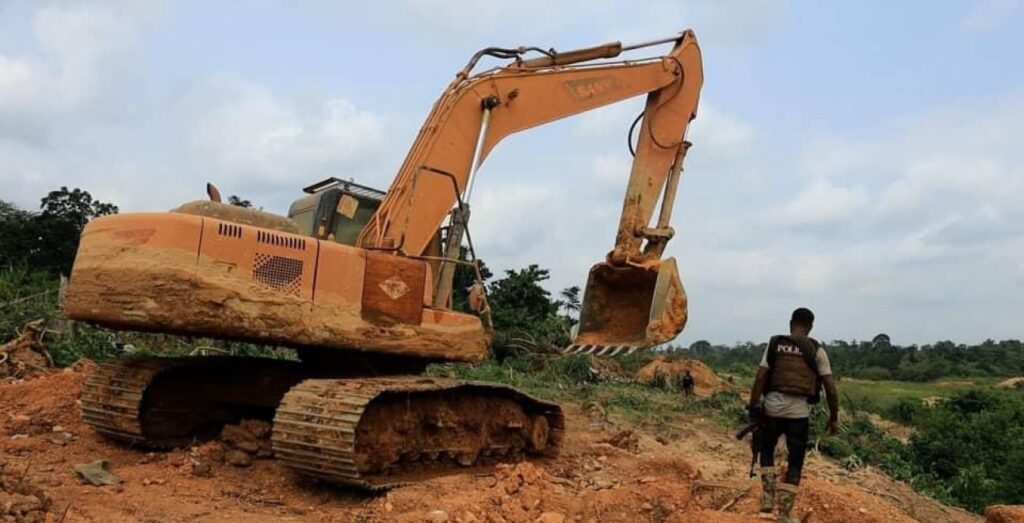Ghana has acknowledged that its fight against illegal gold mining, known as galamsey, is a matter of national security. Now experts are saying that links between galamsey, terrorism, transnational criminal networks and other illicit economies are a problem for most of West Africa.
It is well known that proceeds from galamsey have ended up in the hands of terrorist organizations. Liam Morrisey, a mining and security risk consultant, believes that Ghana is in danger of infiltration by these militants operating in and around the country’s northern borderlands.
“The threat that Galamsey poses is despicable, and Ghana needs to treat it as an emergency before these terrorists find their way here,” he told TV3 news network in an October 15 interview. “Looking at the porous borders and the Burkina Faso instability issues, Ghana can be a target easily. I know the authorities are aware of this, and it will be prudent to stop it before it comes here.”
The tri-border area where Burkina Faso and Côte d’Ivoire meet northwestern Ghana has emerged as a resourcing hub for al-Qaida affiliate Jama’at Nusrat al-Islam wal-Muslimin (JNIM), according to an October 20 report from the Global Initiative Against Transnational Organized Crime (GI-TOC).
Lucia Bird, co-author of the report and director of GI-TOC’s Observatory of Illicit Economies in West Africa, said northern Ghana is surrounded by JNIM.
“Because of the structure of the gold mining economy — artisanal gold flows north, financing coming south — it all makes it vulnerable to infiltration by JNIM,” she told German news service Deutsche Welle.
Galamsey was among the 20 illicit economies identified by GI-TOC in West Africa. The most prominent and widespread were drug trafficking, arms trafficking and the illicit gold trade.
“These include overtly criminal markets such as arms trafficking and kidnapping, and illicit economies that overlap with other economic activities, which local populations may consider merely ‘informal,’” the report stated.
The tri-border area is a key corridor of cattle rustling and illicit livestock trade, which are other critical sources of revenue to JNIM. Cross-border smuggling in the area also includes fuel and motorcycles, many of which come through Ghana’s coastal ports before being trafficked north. GI-TOC said that the Ghanaian border towns of Tumu and Hamile are key transit points for fuel flows to Burkina Faso.
JNIM’s strategy is to secure resources without resorting to violence in its key logistical corridors.
“The illicit gold trade is central to resourcing, financing and legitimacy building for armed groups,” GI-TOC said. “Although some armed groups engage in gold mining directly, they more often derive revenue through taxation of mining activities, sometimes in return for providing security, or at the very least not attacking the mining community themselves.”
Ghana is confronting its galamsey problem, but gold mining is an important industry that is estimated to employ a million Ghanaians. The government has stepped up border surveillance and launched new operations against illegal mining, but Morrisey wants to see authorities identify where the illicit money and gold end up.
“We need to go beyond just tracking, we must tighten border control,” he said. “Civil society groups must report anything suspicious. The military and civilian police must also work together, and then government must intensify community engagement.”

